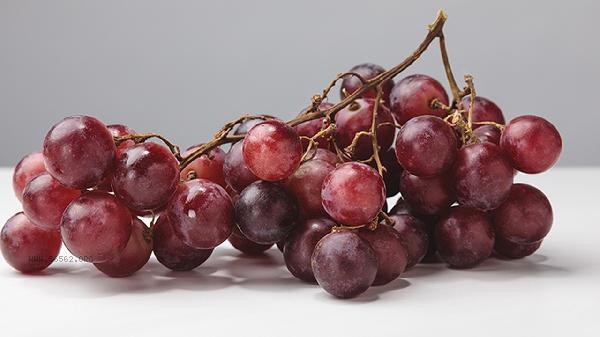The colors of grapes mainly include purple, green, red, black, yellow, pink, white, etc. Grapes of different colors have slight differences in nutritional content and taste, and can be selected according to personal preferences and nutritional needs.

1. Purple grapes
Purple grapes are rich in anthocyanins, which have antioxidant properties and help to eliminate free radicals in the body. Purple grapes usually have a higher sweetness and thicker skin, making them suitable for direct consumption or making wine. Moderate consumption of purple grapes can help protect cardiovascular health.
2. Green grapes
Green grapes contain a lot of vitamin C and organic acids, with a refreshing and sweet taste. Green grapes have thin skin and crispy and tender flesh, suitable for fresh consumption or making dried fruits. The polyphenols in green grapes help promote digestion.
3. Red grapes
Red grapes contain active ingredients such as resveratrol, which have anti-inflammatory effects. Red grapes have a moderate sweetness and juicy flesh, suitable for juicing or making jam. Eating red grapes regularly can help enhance immunity.

4. Black grapes
Black grapes are rich in various minerals and vitamins, and have high nutritional value. Black grape skins have a deep color and a rich flavor, suitable for making wine or raisins. The antioxidants in black grapes help to delay aging.
5. Yellow grapes
Yellow grapes contain a lot of carotenoids and potassium elements, which are beneficial for vision protection. The yellow grapes have larger grains and a sweet taste, suitable for fresh consumption or making fruit salads. The dietary fiber in yellow grapes helps maintain intestinal health. Grapes are a nutrient rich fruit, and grapes of different colors have their own characteristics. It is recommended to choose suitable grape varieties according to the season and individual constitution, and pay attention to cleaning before consumption. Glucose content is high, so diabetes patients should control their intake. When storing grapes, they should be kept dry and ventilated to avoid crushing and spoilage. In daily diet, different colored grapes can be paired in moderation to obtain more comprehensive nutrition.










Comments (0)
Leave a Comment
No comments yet
Be the first to share your thoughts!